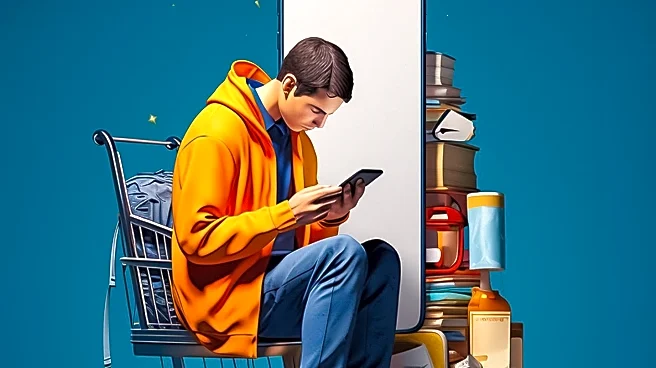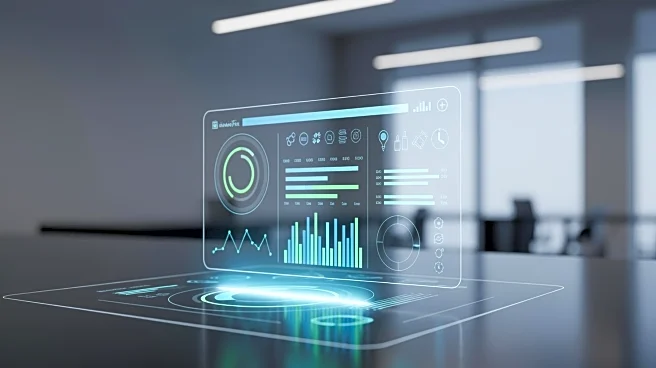What's Happening?
The digital detox lifestyle trend is experiencing significant growth as individuals increasingly seek to disconnect from their devices to improve mental health and well-being. This movement is driven by
a growing awareness of digital fatigue and the negative impacts of constant connectivity. The market for digital detox solutions is projected to expand from USD 1,179.8 million in 2025 to USD 3,654.4 million by 2033, with a compound annual growth rate (CAGR) of 15.3%. Mobile-based solutions, featuring habit tracking and gamification, are at the forefront of this trend. Additionally, there is a notable increase in interest in digital detox retreats and the resurgence of 'dumbphones,' which are simpler, less connected mobile devices. This shift reflects a broader cultural movement towards more mindful, slower lifestyles and a desire for analog escapism.
Why It's Important?
The rise of the digital detox trend highlights a significant cultural shift towards prioritizing mental health and well-being over constant digital engagement. As more individuals recognize the detrimental effects of excessive screen time, there is a growing demand for solutions that promote a balanced lifestyle. This trend has implications for various industries, including technology, wellness, and fashion, as companies adapt to meet the changing needs of consumers. The increased interest in digital detox solutions also suggests a potential market opportunity for businesses that can offer innovative products and services to support this lifestyle. Furthermore, the trend underscores the importance of addressing mental health issues related to digital consumption, which could lead to broader societal changes in how technology is integrated into daily life.
What's Next?
As the digital detox trend continues to gain momentum, it is likely that more companies will develop products and services to cater to this growing market. This could include the creation of new apps, retreats, and devices designed to help individuals disconnect from their screens. Additionally, there may be increased advocacy for digital well-being, with more public awareness campaigns and educational initiatives aimed at promoting healthier technology use. Policymakers and mental health professionals may also play a role in shaping guidelines and recommendations for digital consumption, further influencing how society approaches technology use in the future.
Beyond the Headlines
The digital detox trend raises important ethical and cultural questions about the role of technology in modern life. As individuals seek to reclaim their time and attention, there is a growing conversation about the responsibilities of tech companies in designing products that prioritize user well-being. This movement also reflects a broader desire for authenticity and meaningful connections, as people increasingly value real-world experiences over virtual interactions. The trend may lead to long-term shifts in consumer behavior, with more individuals opting for offline activities and experiences that promote mindfulness and presence.








